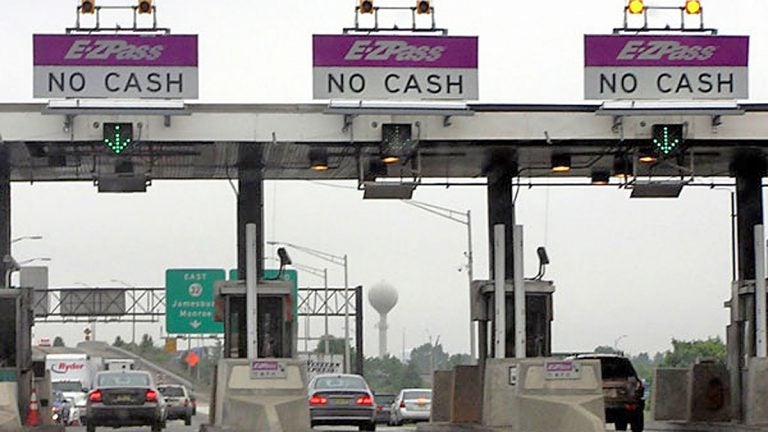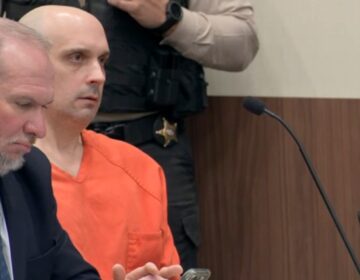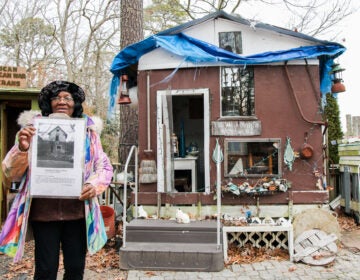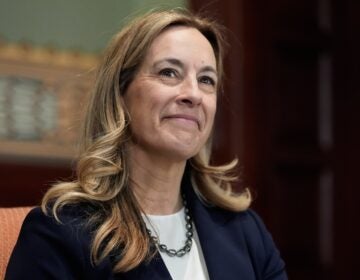Analysis: N.J. Turnpike Authority toll revenues could be tapped under merger proposal

New Jersey officials looking for solutions to the state’s transportation funding crisis are increasingly considering merging the cash-starved state Department of Transportation and New Jersey Transit with the New Jersey Turnpike Authority to enable $400 million in excess Turnpike and Garden State Parkway toll revenues to be used for overall state transportation needs.
The merger of NJDOT’s $1.38 billion annual budget with the $1.78 billion NJ Transit, $1.55 billion Turnpike Authority, $1.6 billion Transportation Trust Fund Authority, and $2 billion in matching federal funds they control would create one of the nation’s largest transportation agencies.
And while Assembly Transportation Committee Chairman John Wisniewski (D-Middlesex) and other proponents focus on the cost-saving efficiencies that could be achieved by merging NJDOT, New Jersey Transit and the New Jersey Turnpike Authority, the authority’s biggest asset is clearly the $400 million a year in excess revenue it generates on Turnpike and Garden State Parkway tolls.
The Christie administration is already using the Turnpike Authority as a piggy bank, diverting $295 million a year in toll money that was first supposed to go to the cancelled ARC rail passenger tunnel, then to the Transportation Trust Fund, to underwrite New Jersey Transit rail and bus operations instead.
That diverted ARC money is supposed to run out after next year’s budget — leaving a big hole in the state’s transportation budget at the same time that it needs to come up with a new funding plan for the Transportation Trust Fund — but not if the state’s three major transportation agencies end up sharing a single bank account.
And while the State of New Jersey’s credit has been downgraded eight times under the Christie administration to a single-A rating lower than any state except Illinois, the New Jersey Turnpike Authority continues to enjoy a solid AAA bond rating. That’s because the Turnpike Authority expects to generate $1.63 billion in 2014 revenue — including $1.024 billion in Turnpike tolls and $415 million in Parkway tolls — but expects to spend just $476 million on operating expenses and $615 million on debt service. That leaves $444.25 million in “excess revenues,” of which $324 million was diverted to the state budget for general transportation purposes. The excess revenues are high because tolls were doubled between 2008 and 2011 to provide funding for the canceled ARC tunnel and other projects.
“You would think that having the New Jersey Turnpike Authority’s stable funding stream of $1.5 billion in annual toll revenue as part of the state’s transportation portfolio would translate into lower interest rates in going out for future borrowing,” said Martin E. Robins, director emeritus of Rutgers University’s Alan M. Voorhees Transportation Policy Center. Even with passage of a hefty gas tax, the five-year TTF renewal is likely to require $3 billion to $4 billion in new borrowing.
The New Jersey Turnpike Authority board is chaired by the state DOT commissioner, and its members are nominated by the governor and confirmed by the state Senate. But merger of the agency into the DOT would give the governor direct control over the agency’s finances without having to worry about longtime commissioners exercising independent judgment.
While merging independent authorities with complicated bond covenants into state agencies is a complex endeavor, a convergence of political and public policy needs makes a merger of NJDOT and the Turnpike Authority — with or without New Jersey Transit and/or the South Jersey Transportation Authority that runs the Atlantic City Expressway at a profit — increasingly more likely than ever before:
The Transportation Trust Fund is scheduled to run out of money for new highway, bridge, and mass-transit capital projects a year early as a result of overborrowing by the Christie administration, and Christie and Democratic legislative leaders will need to make that $400 million a year in excess Turnpike and Parkway tolls part of the state’s overall transportation funding solution.
State officials have steadily eroded the once-sacrosanct notion that Turnpike and Parkway revenues should be used only for Turnpike and Parkway expansion, repairs, and bond payments — most notably with former Gov. Jon Corzine’s decision to double tolls partly to pay for the ARC tunnel and with Christie’s diversion of those toll revenues to pay for NJ Transit rail and bus operations.
Christie’s new transportation commissioner, Jamie Fox, already has experience shepherding through the 2003 merger of the New Jersey Highway Authority, which ran the Garden State Parkway, into the much-larger New Jersey Turnpike Authority. That process started with a study conducted while he was serving as Democratic Gov. Jim McGreevey’s transportation commissioner and concluded while he was McGreevey’s chief of staff.
Wisniewski and transportation advocates, including the recently formed Forward New Jersey coalition, regard the mega-merger as a way to assure New Jersey voters — who will most likely be hit with at least a doubling of state gas taxes to fund TTF — that the state is doing everything it can to cut highway, bridge and mass transit costs by cost-saving efficiencies.
Massachusetts, Texas, North Carolina, and Kansas all achieved cost savings by merging their turnpike authorities into their state departments, a New Jersey Forward study noted. And Christie is going to want a similar success to point to if he does go for a substantial gas tax increase heading into his expected 2016 campaign for the Republican presidential nomination.
Cathleen Lewis, director of public affairs and government relations for AAA New Jersey, said a merger of NJDOT with the Turnpike Authority would be important to convince New Jersey voters, who are increasingly skeptical of the ability of state government to spend their tax dollars efficiently, that a gas-tax increase is necessary.
“For the first time since we started our annual survey, we had had upside-down numbers on whether people would support a gas-tax increase with safeguards built in to ensure that every penny went to transportation,” Lewis noted. “We always had support for it before, but there is an intrinsic lack of faith that the money is getting to the right places.
“Restructuring the state’s transportation agencies to achieve cost savings — even though it would take time — could be the first step to winning back public trust,” she said.
With NJDOT and New Jersey Transit under constant budget pressure and the Transportation Trust Fund about to run out of money, Lewis is not the only transportation advocate who believes a merger of the state’s transportation agencies may be inevitable.
New Jersey Forward, the coalition formed under New Jersey State Chamber of Commerce President Tom Bracken, highlighted the merger of NJDOT, New Jersey Transit, and the Turnpike Authority as a principal option at a press conference at which it called for the state to spend $1.6 billion to $2 billion a year on transportation capital projects, with hefty increases in the gas tax or petroleum products gross-receipts tax or a new sales tax on gas as the most likely options.
Citing the $100 million annualized savings expected from Massachusetts’ transportation consolidation and the success of New Jersey’s 2003 Turnpike-Parkway merger, New Jersey Forward’s study suggested that “the New Jersey Department of Transportation’s consolidation with such agencies as the New Jersey Turnpike Authority, the New Jersey Trust Fund Authority, New Jersey Transit, the South Jersey Transportation Authority, and Motor Vehicle Commission will likely produce significant savings and efficiencies, particu¬larly in the areas of administration, opera¬tions, and large-scale innovative projects.”
Robins is less persuaded about the cost savings than the opportunity to inject needed funding into the state’s transportation operations.
“The New Jersey Department of Transportation has been so starved of operating funds and has lost so many employees over the past two administrations that I’ve come to believe that a merger of DOT and the Turnpike Authority now makes sense,” Robins said.
NJDOT had 3,967 employees when Corzine took office in January 2006, but was cut to 3,419 workers in the Democratic governor’s 2008 and 2009 budgets cuts after the Great Recession sent state revenues plummeting. Christie cut the department’s staff to 3,038 by January 2012 and to 2,790 in this year’s budget — almost a 30 percent cut since 2006.
The staffing cuts at NJDOT were one of the reasons that Philip Beachem, executive director of New Jersey Alliance for Action, last week urged the Assembly Transportation Committee to have the Turnpike Authority take over the roadwork and maintenance on major federal highways like Routes 287, 80, 78, 195 and 295. Mass-transit advocates expressed concern about the wisdom of merging NJ Transit, whose focus is rail and bus passenger operations, into a mega-agency whose principal concern would be highway and bridge construction and repair.
“The purpose of creating NJ Transit in 1979 was to create an agency that would put mass-transit needs first,” said Robins, who was serving as DOT’s top policy analyst when he helped Commissioner Lou Gambaccini plan the new agency in the aftermath of a wave of rail and bus commuter protests. “We don’t want to lose that.”
Janna Chernetz, New Jersey Advocate for the Tri-State Transportation Campaign, agreed.
“We’re definitely concerned about the future of NJ Transit,” said Chernetz. “To fold a transit agency into a department whose principal focus is roads and bridges might be counterproductive, and might not provide real cost savings either. We’re going to have to look at states like Massachusetts who have been down this road to see what their experience has been.
“Our real focus right now has to be on raising the revenue we need to fund the Transportation Trust Fund at a level sufficient to meet New Jersey’s needs,” she said. “Otherwise, we’re just moving around deck chairs on the Titanic.”
____________________________________________
NJ Spotlight, an independent online news service on issues critical to New Jersey, makes its in-depth reporting available to NewsWorks.
WHYY is your source for fact-based, in-depth journalism and information. As a nonprofit organization, we rely on financial support from readers like you. Please give today.




